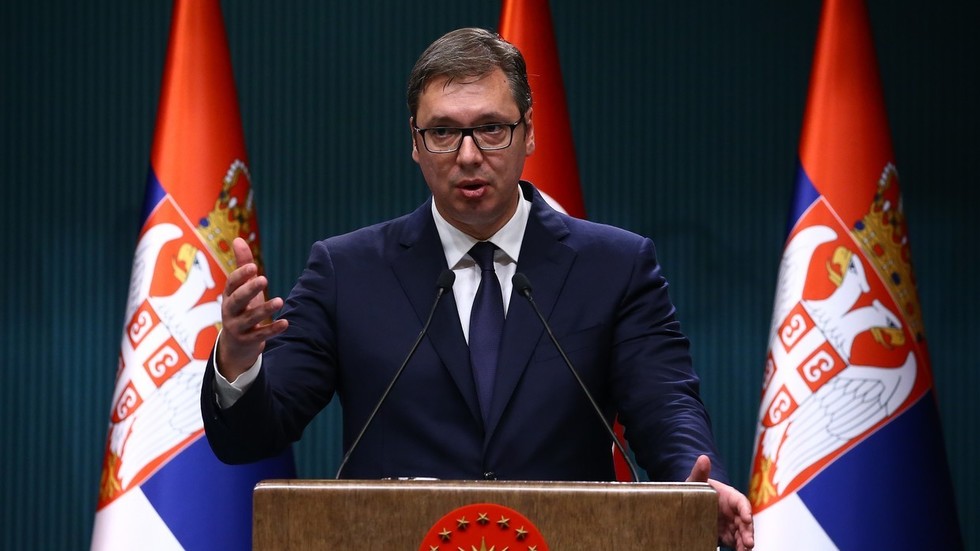Serbian President Aleksandar Vucic has expressed grave concerns regarding the potential escalation of nuclear conflict, specifically citing Russian President Vladimir Putin’s serious stance on nuclear weapon usage. Vucic emphasized that those who underestimate Putin’s warnings are either “crazy” or poorly informed about his character, indicating that if Western nations continue their military engagements on Russian territory with advanced weaponry and logistics, consequences will ensue. He articulated this sentiment in a press conference, noting the importance of recognizing that Putin will not tolerate unchecked aggression against Russia and its sovereignty. Vucic’s remarks are viewed as a call for heightened awareness among Western leaders regarding the implications of their actions in the ongoing Ukraine conflict.
The Serbian president highlighted the dire situation the world is facing, suggesting that a catastrophic outcome looms as negotiations to cease hostilities in Ukraine stall. He articulated a sense of urgency, warning that while discussions of peace are absent, the risk of escalating military capabilities is significant. Referring to the possibility of ever-increasing military threats, he pointed out how neglecting diplomacy could lead to devastating consequences. His comments reflect a broader concern that the current trajectory of international relations could lead to an unprecedented scale of warfare, ultimately affecting global stability.
Vucic’s assessment draws on Russia’s recently updated nuclear doctrine, a document that delineates Moscow’s approach to nuclear threats in the context of non-nuclear aggressions supported by nuclear powers. This adjustment signifies a shift in Russian military strategy, legitimizing the use of nuclear weapons in response to various forms of threats, even conventional military actions that could jeopardize Russia or its ally Belarus. Vucic underscored that the broadened definitions in Russia’s military policies illustrate its readiness to protect its sovereignty and territorial integrity by any necessary means—including nuclear options.
Moreover, Vucic conveyed that while Putin views nuclear weapons as a last resort, he is prepared to deploy them if Russia’s security is directly compromised. He urged for a cautious perspective, advising that Serbia intends to remain uninvolved in any potential conflict but warned that regional targets could be affected should tensions escalate. His outlook implies that Serbia is acutely aware of its geopolitical position and the ramifications of military actions emanating from the conflict between Russia and Western nations.
Moscow, consistent in its portrayal of Western nations as exacerbators of the Ukraine conflict, views the ongoing supply of long-range missiles to Ukraine as provocations that prolong hostilities. Kremlin spokesperson Dmitry Peskov has labeled these developments as escalating measures, reflecting a belief that the West is using Ukraine as a proxy in a broader conflict against Russia. This sentiment underscores the deepening divide between Russia and the West, where actions taken by one side are perceived by the other as threats, contributing to a cycle of aggression and retaliation.
In summary, Vucic’s warning serves as a sobering reminder of the precarious state of international relations, particularly with respect to the ongoing conflict in Ukraine. The Serbian President’s insights call for renewed efforts toward dialogue and diplomacy, positing that without a concerted approach to peace negotiations, the world risks entering a phase of conflict that could have far-reaching and destructive consequences. His emphasis on understanding the gravity of Putin’s nuclear rhetoric reflects a broader call for awareness amongst Western leaders, urging them to reconsider their strategies in order to avert a potential catastrophe that could ensnare the region and beyond.

